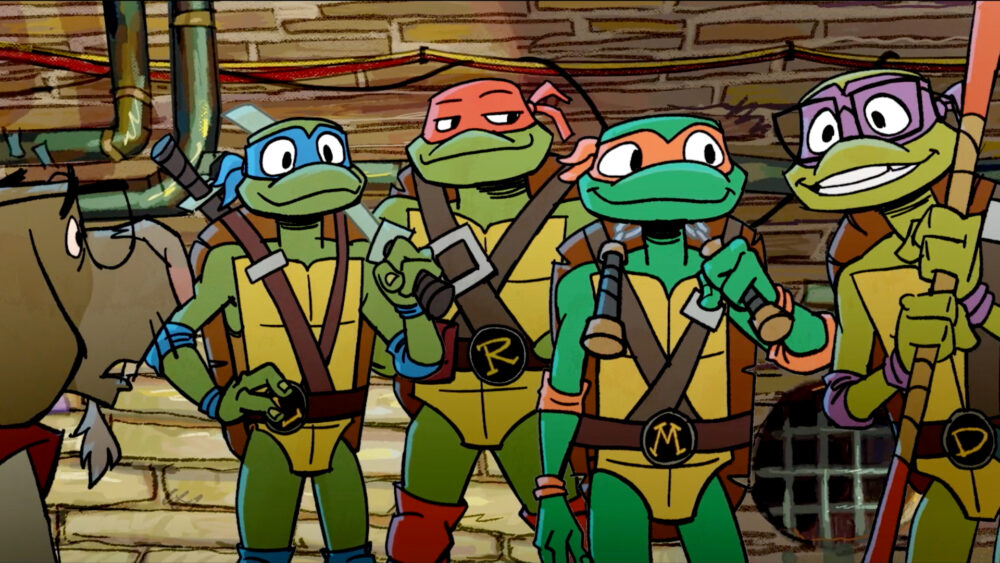Let me make something clear from the start. Some movies make you feel glad there are movies, and some movies make you glad you are alive. Wes Anderson’s Isle of Dogs makes you feel both.
In additional, let me say here that I love Wes Anderson. There is no objectivity when it comes to his films. I can discuss the strengths and weaknesses of individual films, discuss the common traits and themes of his oeuvre, but I can’t pretend that I’m not strongly drawn to his work and feel an affinity for it.
That aside, what is about Isle of Dogs that steers me to say it’s one of his best? To answer that, I have to touch upon some of his earlier films.
Anderson’s films are, if nothing else, hermetic. They exist in their own world and make no attempt to be records of actual lived events. They are the perfect postmodern artifact: Stylistically whole and reflective of not only themselves, but of Anderson’s other works, and the artists and filmmakers that have influenced him.
If he were less of an artist, if his vision and style were less mature, then there would be little to attract us to him. But ironically, despite the seeming uniformity of his style, he is one of the most inventive and creative filmmakers alive.
Isle of Dogs is a homage to both Japan and the films of Akira Kurosawa, which for many of us cineastes are synonymous. But it’s an homage from an outsider’s perspective, from a foreigner who sees the differences and explores and embraces them. The same can be said about his last film, The Grand Budapest Hotel, where he entered the world of the writings of Stefan Zweig and the fading splendor of Eastern Europe.
In a Wes Anderson film, every frame can be framed. Every frame is a well thought out composition that holds a treasure trove of witty details. It’s in the searching out and finding of these details that much of the delight lies. For instance, early on, Jupiter, the wise elder canine (F. Murray Abraham), addresses the camera and introduces the story of crooked mayor Kobayashi ’s attempt to quarantine and exile all the dogs of Megasaki City to Trash Island.
Of course, this announcement is accompanied by animated maps, a black and white photo of the mayor (who looks exactly like Kurosawa’s favorite actor, Tishiro Mifune), images of a variety of sneezing dogs with scabby noses (dog flu and snout fever), text on the screen identifying dogs, people and places, and I’m sure more that I didn’t catch on first viewing.
Oh, and by the way, Jupiter has cataracts on his left eye, and is accompanied by a pug named Oracle (Tilda Swinton) who received visions from watching television.
All of this delivered in the deadpan earnestness that so defines every line of dialogue and narration, every image and action, in every Wes Anderson film. It’s a trademark of an artist who has many trademarks.
However, it is the constant inventiveness that makes this film so enjoyable. In The Fantastic Mr. Fox, Anderson’s earlier stop action animated film, he explored the possibilities of this art form, and here he shows a level of mastery that makes us forget these are puppets by taking their “puppetness” to an extreme. It’s the old Post-Modern magic trick, the same one he plies in all his films: By never letting us forget this is a film, we forget that it’s a film. Delight overcomes analysis and self-awareness. In the end, it’s damn near perfect.

Events
Paramount+ Reveals Official Main Title Sequence for the Upcoming Series TALES OF THE TEENAGE MUTANT NINJA TURTLES

During the TALES OF THE TEENAGE MUTANT NINJA TURTLES panel earlier today at San Diego Comic Con, Paramount+ revealed the official main title sequence for the series. The sequence is composed by EMMY® nominee, Matt Mahaffey, known for his work on Sanjay and Craig, Rise of the Teenage Mutant Ninja Turtles, and Rise of the Teenage Mutant Ninja Turtles: The Movie and much more.
From the studios of the Mutant Mayhem film, the all-new Paramount+ original series TALES OF THE TEENAGE MUTANT NINJA TURTLES explores the adventures of everyone’s favorite pizza-loving heroes as they emerge from the sewers onto the streets of NYC. Leo, Raph, Donnie and Mikey are faced with new threats and team up with old allies to survive both teenage life and villains lurking in the shadows of the Big Apple. The series is produced by Nickelodeon Animation and Point Grey Pictures.
TALES OF THE TEENAGE MUTANT NINJA TURTLES is executive produced by Chris Yost (The Mandalorian, Thor: Ragnarok) and Alan Wan (Blue Eye Samurai, Rise of the Teenage Mutant Ninja Turtles, Teenage Mutant Ninja Turtles [2012 Series]). Production is overseen for Nickelodeon by Claudia Spinelli, Senior Vice President, TV Series Animation, Nickelodeon, and Nikki Price, Director of Development and Executive in Charge of Production.
In addition to the upcoming new series, stream all things Turtles on Paramount+.
Events
Comic-Con 2024: Those About to Die Activation
Events
DISNEY+ CASTS DANIEL DIEMER AS FAN-FAVORITE ‘TYSON’IN SEASON TWO OF “PERCY JACKSON AND THE OLYMPIANS”

in Hall H at San Diego Comic-Con, Rick Riordan and Disney+ revealed that Daniel Diemer (“Under the Bridge”) will star as fan-favorite cyclops “Tyson” in the epic adventure series “Percy Jackson and the Olympians.” Diemer joins Walker Scobell (Percy Jackson), Leah Sava Jeffries (Annabeth Chase) and Aryan Simhadri (Grover Underwood) as a series regular. The Disney+ Original series from Disney Branded Television and 20th Television will start filming its second season next week in Vancouver.
Season two of “Percy Jackson and the Olympians” is based on the second installment of Disney Hyperion’s best-selling book series titled “The Sea of Monsters” by award-winning author Rick Riordan. In the new season, Percy Jackson returns to Camp Half-Blood one year later to find his world turned upside down. His friendship with Annabeth is changing, he learns he has a cyclops for a brother, Grover has gone missing, and camp is under siege from the forces of Kronos. Percy’s journey to set things right will take him off the map and into the deadly Sea of Monsters, where a secret fate awaits the son of Poseidon.
Diemer stars as Tyson – a young Cyclops who grew up all alone on the streets, and finds it difficult to survive in the human world. Shy and awkward, with a heart almost as big as he is, Tyson soon discovers that Poseidon is his father, which means Percy Jackson is his half-brother… and that Tyson may have finally found a home.
Diemer recently starred in the Hulu limited series “Under the Bridge” based off the critically acclaimed book of the same name and a tragic true story of a missing teen girl in Vancouver in 1997. He will next star in the indie “Thug” opposite Liam Neeson and Ron Perlman for director Hans Petter Moland. Daniel was recently seen as the lead in the indie “Supercell” opposite Alec Baldwin and Skeet Ulrich and the lead in the film “Little Brother” opposite Phil Ettinger and JK Simmons. Daniel can also be seen in the Netflix series “The Midnight Club” and recently starred as the male lead in the breakout hit Netflix feature “The Half Of It” from producer Anthony Bregman and director Alice Wu. He is a graduate of Victoria Academy of Dramatic Arts in Vancouver.
Created by Rick Riordan and Jonathan E. Steinberg, season two of “Percy Jackson and the Olympians” is executive produced by Steinberg and Dan Shotz alongside Rick Riordan, Rebecca Riordan, Craig Silverstein, The Gotham Group’s Ellen Goldsmith-Vein, Bert Salke, The Gotham Group’s Jeremy Bell and D.J. Goldberg, James Bobin, Jim Rowe, Albert Kim, Jason Ensler and Sarah Watson.
The first season of “Percy Jackson and the Olympians” is available on Disney+
-

 Interviews1 day ago
Interviews1 day agoInterview With Heroes & Villains Creative Director Doug Johnson
-

 Streaming1 day ago
Streaming1 day agoApple TV+ announces season two for delightful kids and family series “Camp Snoopy
-

 Events1 day ago
Events1 day agoThat’s My E Coverage Of The Adult Swim’s Pirate Parrrty
-

 Events14 hours ago
Events14 hours agoParamount+ Reveals Official Main Title Sequence for the Upcoming Series TALES OF THE TEENAGE MUTANT NINJA TURTLES
-

 Events17 hours ago
Events17 hours agoDISNEY+ CASTS DANIEL DIEMER AS FAN-FAVORITE ‘TYSON’IN SEASON TWO OF “PERCY JACKSON AND THE OLYMPIANS”
-

 Interviews17 hours ago
Interviews17 hours agoComic-Con 2024: Will Wight’s Cradle
-

 Events16 hours ago
Events16 hours agoComic-Con 2024: Those About to Die Activation


